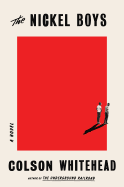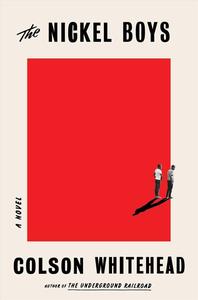
 The Nickel Boys forgoes the fantastical touches of Colson Whitehead's previous book, the Pulitzer Prize-winning novel The Underground Railroad, for a no-less-harrowing account of a vicious reform school in the Jim Crow-era South.
The Nickel Boys forgoes the fantastical touches of Colson Whitehead's previous book, the Pulitzer Prize-winning novel The Underground Railroad, for a no-less-harrowing account of a vicious reform school in the Jim Crow-era South.
Whitehead's protagonist is Elwood Curtis, a black boy living in Tallahassee, Fla., in the early 1960s. Elwood is something of an idealist, listening repeatedly to a recording of Martin Luther King Jr.'s speeches and taking to heart his moral vision: "Elwood bent to a code--Dr. King gave that code shape, articulation, and meaning. There are big forces that want to keep the Negro down, like Jim Crow, and there are small forces that want to keep you down, like other people, and in the face of all those things, the big ones and the smaller ones, you have to stand up straight and maintain your sense of who you are." Elwood clings to this code even when it is repaid by cruel trickery and, eventually, an encounter with police that cuts short his promising future and sends him to the Nickel Academy.
The Nickel Academy falls far short of its billing as a "reform school." In reality, the students are underfed, segregated and viciously beaten. Some students fare even worse: the novel occasionally skips forward in time, opening with an ominous prologue where archeology students uncover a secret graveyard on the Nickel campus. The Nickel Academy is fictional, but it was inspired by the true story of the Dozier School for Boys in Marianna, Fla.
While it takes Elwood time to grasp the full scope of the academy's horrors, he soon comes into contact with a student named Turner: "The second thing Elwood noticed was the boy's eerie sense of self.... Over time, Elwood saw that he was always simultaneously at home in whatever scene he found himself and also seemed like he shouldn't have been there; inside and above at the same time; a part and apart." A survivor and a pragmatist, Turner challenges the wisdom of Elwood's principles.
At the heart of The Nickel Boys lies the question of how best to respond to the evils of the world. Whitehead shows how difficult it actually is to put Martin Luther King Jr.'s self-sacrificing ideals into practice, to remain optimistic in the face of bottomless violence and cruelty. For Turner, the problem lies deeper than surface-level inequality: "You can change the law but you can't change people and how they treat each other... the way Turner saw it, wickedness went deeper than skin color.... It was people." Whitehead shows sympathy to both ways of looking at the world--Elwood may be naïve, but his convictions give him strength.
Whitehead occasionally makes forays into life post-Nickel Academy and, in doing so, underlines the legacy of trauma. Long after students leave the reform school, the Nickel Academy's lessons seem almost impossible to unlearn. And another question arises: How do you build a life when you've seen what people are truly capable of? Whitehead doesn't answer these questions so much as make manifest their terrible weight. --Hank Stephenson, bookseller, Flyleaf Books, Chapel Hill, N.C.
Shelf Talker: The Nickel Boys, Colson Whitehead's follow-up to the Pulitzer Prize-winning The Underground Railroad, is an account of black boys struggling to survive a vicious reform school in the early 1960s.

